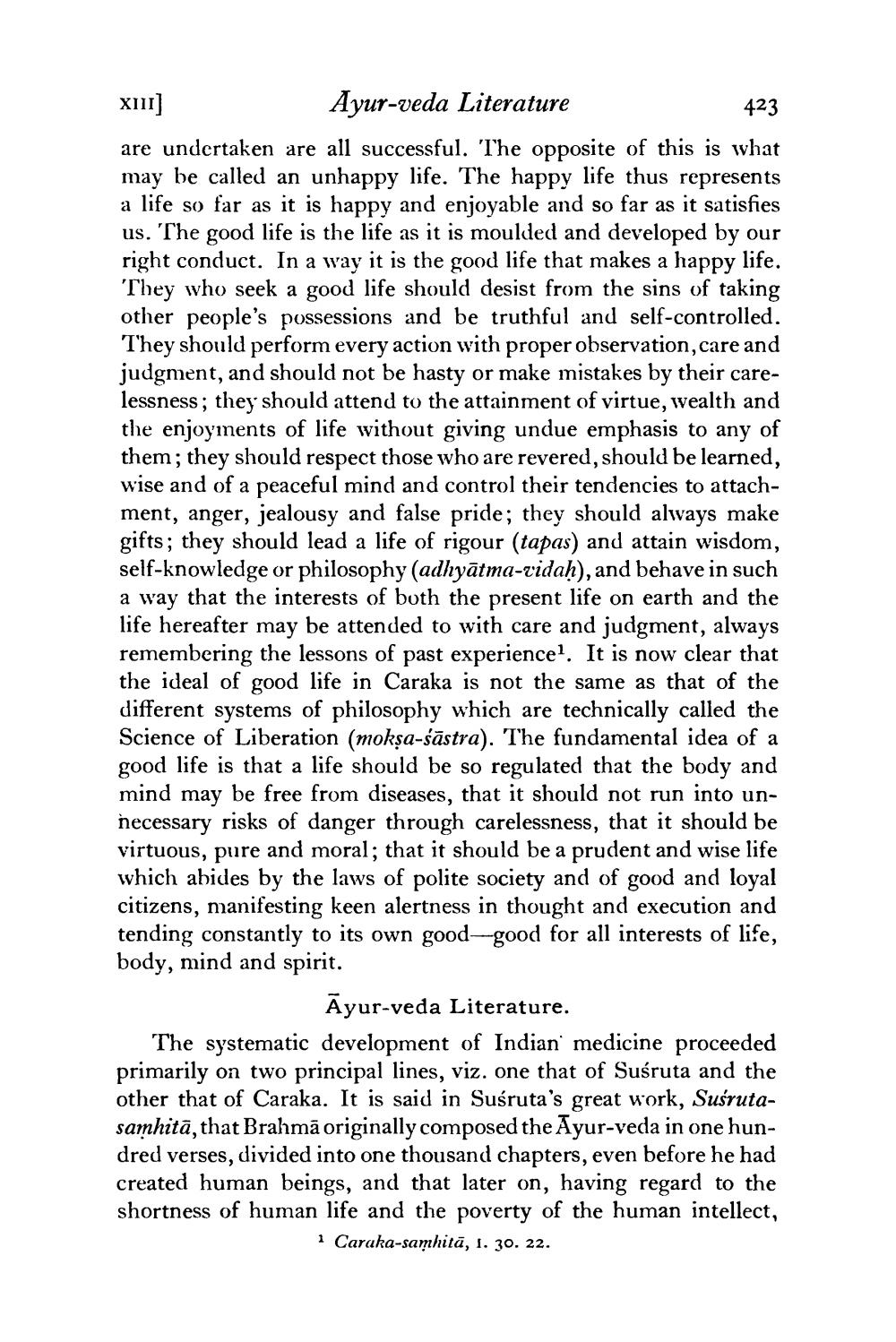________________
X11] Ayur-veda Literature
423 are undertaken are all successful. The opposite of this is what may be called an unhappy life. The happy life thus represents a life so far as it is happy and enjoyable and so far as it satisfies us. The good life is the life as it is moulded and developed by our right conduct. In a way it is the good life that makes a happy life. They who seek a good life should desist from the sins of taking other people's possessions and be truthful and self-controlled. They should perform every action with proper observation, care and judgment, and should not be hasty or make mistakes by their carelessness; they should attend to the attainment of virtue, wealth and the enjoyments of life without giving undue emphasis to any of them; they should respect those who are revered, should be learned, wise and of a peaceful mind and control their tendencies to attachment, anger, jealousy and false pride; they should always make gifts; they should lead a life of rigour (tapas) and attain wisdom, self-knowledge or philosophy (adhyātma-vidaḥ), and behave in such a way that the interests of both the present life on earth and the life hereafter may be attended to with care and judgment, always remembering the lessons of past experienced. It is now clear that the ideal of good life in Caraka is not the same as that of the different systems of philosophy which are technically called the Science of Liberation (mokşa-śāstra). The fundamental idea of a good life is that a life should be so regulated that the body and mind may be free from diseases, that it should not run into unnecessary risks of danger through carelessness, that it should be virtuous, pure and moral; that it should be a prudent and wise life which abides by the laws of polite society and of good and loyal citizens, manifesting keen alertness in thought and execution and tending constantly to its own good-good for all interests of life, body, mind and spirit.
Āyur-veda Literature. The systematic development of Indian medicine proceeded primarily on two principal lines, viz. one that of Susruta and the other that of Caraka. It is said in Susruta's great work, Susrutasamhitā, that Brahmā originally composed the Ayur-veda in one hundred verses, divided into one thousand chapters, even before he had created human beings, and that later on, having regard to the shortness of human life and the poverty of the human intellect,
i Caraka-samhitā, 1. 30. 22.




